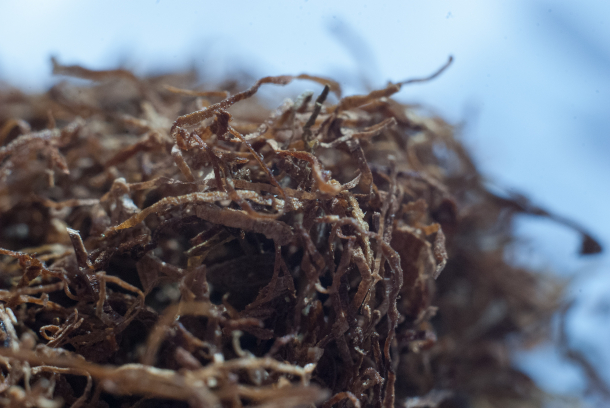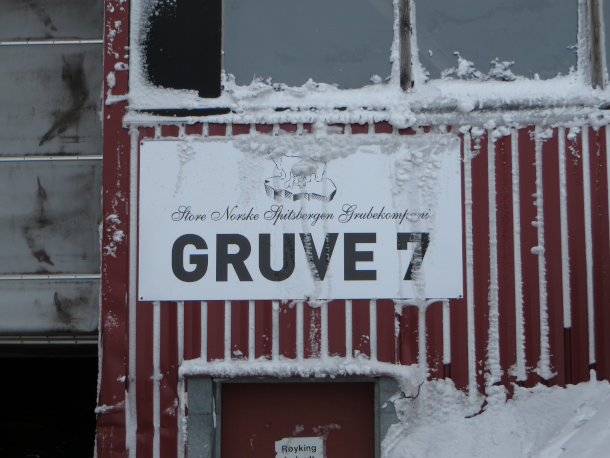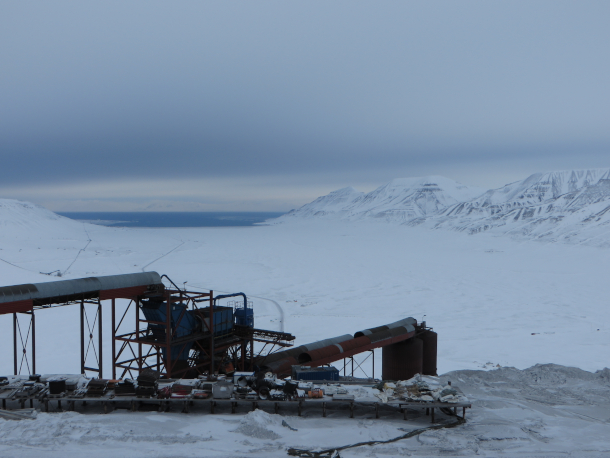Beyond the Headlines
Air Date: Week of August 7, 2020

Tobacco products have been linked to many health problems, including lung cancer, which brings a twinge of irony to the news that major tobacco companies are now pursuing tobacco-based vaccines. They hope it will provide a cheap medium for delivery of the viral elements used to generate an immune response. (Photo: Krzysztof Badurek, Flickr, CC by 2.0)
It’s Irony Week for this edition of Beyond the Headlines. Environmental Health News Editor Peter Dykstra and Host Steve Curwood discuss major tobacco companies’ pursuit of a tobacco-based vaccine for COVID-19, then move on to discuss the flooding of the last functioning coal mine in Norway by meltwater from a nearby glacier. Finally, Peter and Steve take a trip through history to discuss the connection between the Japanese whaling industry and the horrific U.S. atomic bombing of Hiroshima and Nagasaki 75 years ago.
Transcript
CURWOOD: It's Living on Earth, I'm Steve Curwood.
It's that time of the program when we take a look beyond the headlines with our intrepid guide, Peter Dykstra. Peter's an editor with environmental health news, that's ehn.org and dailyclimate.org, on the line now from Atlanta, Georgia. Hey there, Peter, how you doing and what do you have for us today?
DYKSTRA: Well, hi, Steve. You know, if cable TV can have Shark Week. I think Living on Earth ought to have irony week, and I've got two giant ones to talk us through today.
CURWOOD: Okay, hit me with them.
DYKSTRA: British American Tobacco, the makers of Lucky Strike, is pursuing a tobacco-based COVID-19 vaccine. They'll take a weakened form of Coronavirus, using tobacco as the medium turn it into a vaccine. Other companies like Philip Morris are also pursuing this. British American Tobacco has petitioned the FDA, the Food and Drug Administration, they're awaiting an answer to start clinical trials and they've tried this before with Ebola, with more conventional forms of the flu with very limited results, if any, they're trying again to turn tobacco into a limited version of a hero if it can do anything to help arrest Coronavirus.
CURWOOD: Well, tobacco certainly killed a whole bunch of people, so maybe it might be able to redeem itself this way. What else do you have for us today, Peter?
DYKSTRA: Irony number two, and I love this one. There's a glacier in the Svalbard archipelago, that's in the Arctic part of Norway, land temperatures were 71 degrees in recent weeks there, and it's melting so quickly, that it has flooded and ruined Norway's last functioning coal mine.
CURWOOD: You got to be kidding. Yeah, you're talking about an irony coal responsible for climate disruption is getting rinsed out of the business by melting glaciers. Is this true? Peter, come on, you can tell me .
DYKSTRA: This is the revenge of climate change, this last coal mine in Norway, feeds the last coal burning power plant in Norway. It is out of business now, probably forever flooded by the glacier that covers the mountain that is above the coal mine.

Gruve 7, or Mine 7, was the last coal mine still operating in Norway, before meltwater from the glacier on the mountain above the mine flooded the shaft. The now defunct mine supplied all the coal for the Energiverket power plant in Longyearbyen. (Photo: Bernt Rostad, Flickr, CC BY 2.0)
CURWOOD: So as you're fond of saying, indeed, in this case nature does bat last time huh?
DYKSTRA: It does indeed.
CURWOOD: Okay, history time, Peter, we're in August. What do you see going back in the years?
DYKSTRA: Well, with August 6, of course, we're seeing commemorations of the 75th anniversary of the bombing of Hiroshima. Three days later, the bombing of Nagasaki, deaths in six figures, from those two, an end to World War Two, and just a heart stopping moment in history to hope that we never ever use those bombs again. But here's what happened a year to the day after Hiroshima. General Douglas MacArthur was the military governor of Japan, trying to find ways to peacefully get the shattered nation back on its feet, and a year to the day after Hiroshima, General MacArthur authorized the creation of two industrial scale whaling fleets, to help Japan bring in some cash and get back on its feet.

The mine is located in an Arctic region that has been experiencing extremely rapid changes as a result of climate change, with recent temperatures in the region an uncharacteristically balmy 71 degrees Fahrenheit. (Photo: Bernt Rostad, Flickr, CC BY 2.0)
CURWOOD: So what kind of business at this turned out to be?
DYKSTRA: Turned out to be a booming business, obviously a very deadly one for whales. More than two fleets operated in Japan over the next four decades into the 1980s, a little bit beyond, and they wiped out hundreds of thousands of whales, bringing several species that were not yet endangered to the brink of extinction. The International Whaling Commission finally banned industrial whaling in the 1980s, many whale species have yet to recover, and Japan still does smaller scale whaling under the bogus guise of scientific research.

General Douglas MacArthur, acting as the military Governor of Japan following World War II, commissioned two industrial whalers in an effort to kickstart a Japanese economy devastated by the bombings of Hiroshima and Nagasaki. (Photo: Robert Huffstutter, Flickr, CC BY-NC 2.0)
CURWOOD: So Peter, you were talking about irony earlier, is there any irony in this case?
DYKSTRA: There's plenty of irony of course, the tsunami that devastated a big part of Japan north of Tokyo that caused the meltdown at the Fukushima nuclear plant also devastated a whaling port called Ayukama. One of the few whaling ports active in Japan, it took out a big chunk of what was left to the whaling industry in a way that it will probably never recover from.
CURWOOD: Thanks, Peter. Peter Dykstra is an editor with environmental health news. That's eh n.org and daily climate org. We'll talk again real soon.
DYKSTRA: All right, Steve, thanks a lot. Talk to you soon.
CURWOOD: And there's more on these stories on the Living on Earth website. That's LOE.org
Links
Click here to learn more about the effort to develop tobacco-based vaccines
Learn about how that might work here
Read more about how climate change doomed Norway’s last functioning coal mine
Wired | ‘The Japanese Barely Eat Whale. So Why Do They Keep Whaling?’
Living on Earth wants to hear from you!
Living on Earth
62 Calef Highway, Suite 212
Lee, NH 03861
Telephone: 617-287-4121
E-mail: comments@loe.org
Newsletter [Click here]
Donate to Living on Earth!
Living on Earth is an independent media program and relies entirely on contributions from listeners and institutions supporting public service. Please donate now to preserve an independent environmental voice.
NewsletterLiving on Earth offers a weekly delivery of the show's rundown to your mailbox. Sign up for our newsletter today!
 Sailors For The Sea: Be the change you want to sea.
Sailors For The Sea: Be the change you want to sea.
 The Grantham Foundation for the Protection of the Environment: Committed to protecting and improving the health of the global environment.
The Grantham Foundation for the Protection of the Environment: Committed to protecting and improving the health of the global environment.
 Contribute to Living on Earth and receive, as our gift to you, an archival print of one of Mark Seth Lender's extraordinary wildlife photographs. Follow the link to see Mark's current collection of photographs.
Contribute to Living on Earth and receive, as our gift to you, an archival print of one of Mark Seth Lender's extraordinary wildlife photographs. Follow the link to see Mark's current collection of photographs.
 Buy a signed copy of Mark Seth Lender's book Smeagull the Seagull & support Living on Earth
Buy a signed copy of Mark Seth Lender's book Smeagull the Seagull & support Living on Earth

